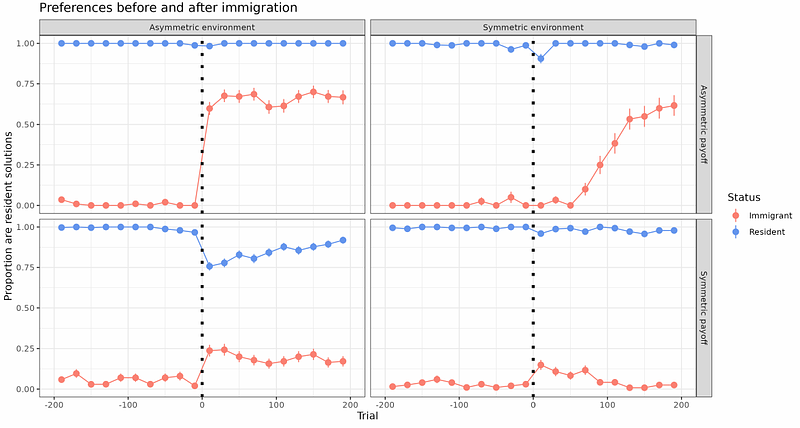Immigrant birds use payoff biased social learning in spatially variable environments

Immigrant birds use payoff biased social learning in spatially variable environments
Chimento, M.; Alarcon-Nieto, G.; Aplin, L. M.
AbstractLongstanding theory predicts that strategic flexibility in when and how to use social information can help individuals make adaptive decisions, especially when environments are temporally or spatially variable. A short-term increase in reliance on social information under these conditions has been experimentally shown in primates, including humans, but whether this occurs in other taxa is unknown. By conducting a large-scale cultural diffusion experiment, we asked whether migration between spatially variable environments affected social information use in great tits (Parus major), a small passerine bird that can socially learn novel behaviors. We simulated an immigration event where knowledgeable birds were exchanged between groups with opposing preferences for a socially learned foraging puzzle, living in similar or different environments. We found evidence that both immigrants and residents were influenced by social information and attended to the rewards that others received. Our analysis supported the use of a payoff-biased social learning by immigrants when both resources and habitat features were spatially variable. In contrast, immigrants relied more-so on individual learning when payoffs or the environment were unchanged. In summary, our results suggest that great tits assess the payoffs others receive, and are more influenced by socially observed differences in payoffs when environmental cues differ in their new environment. Our results provide experimental support for the hypothesis that spatial variation is a strong driver for the evolution of social learning strategies.


